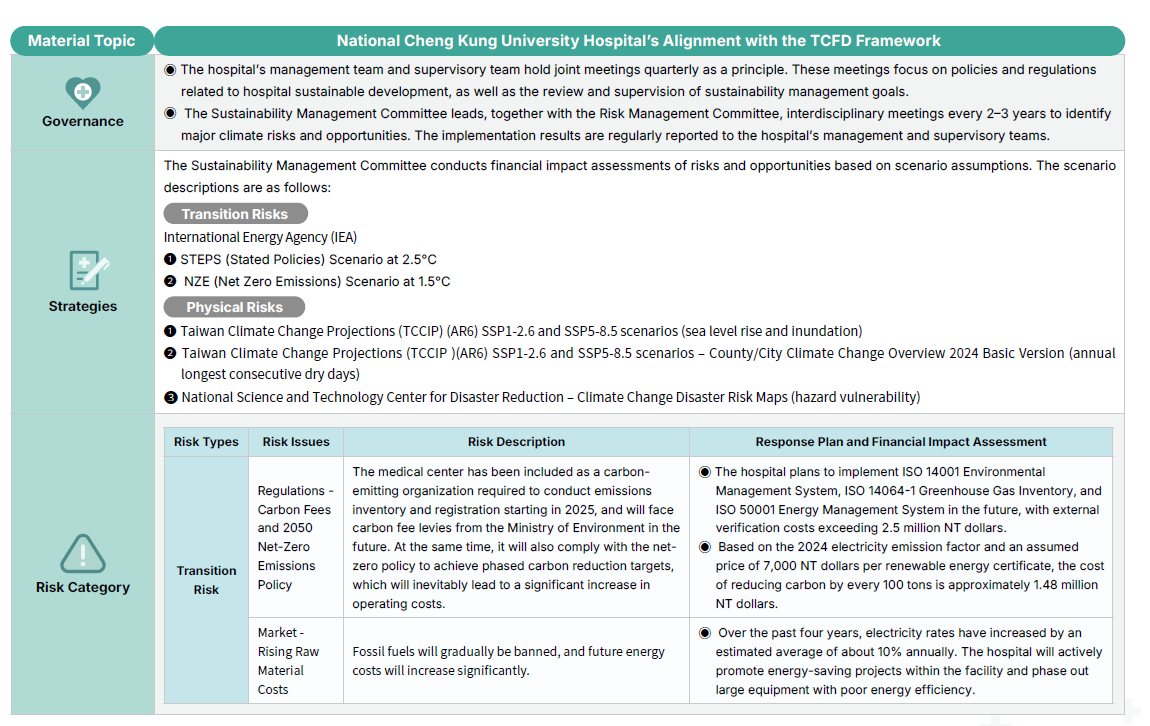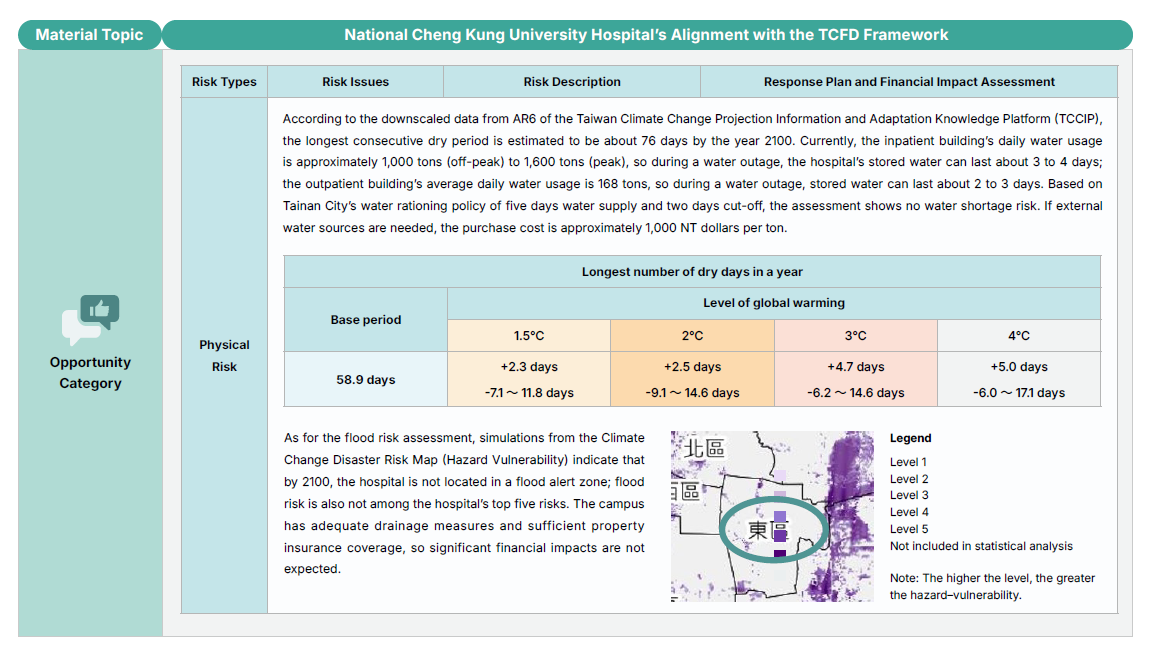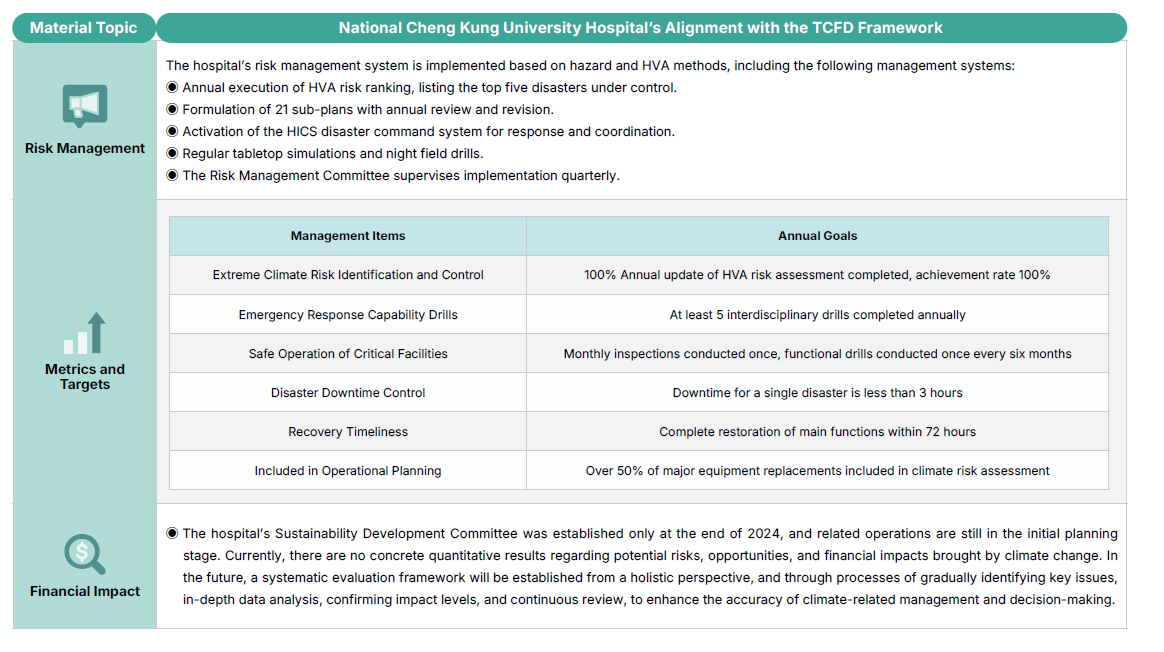Climate Action
Climate Action
-
Climate Risk Assessment
In the context of escalating global climate change and extreme weather events, healthcare institutions, as highly energy-consuming and resource-intensive organizations, bear an undeniable responsibility. According to the carbon footprint report by Health Care Without Harm, the healthcare industry accounts for approximately 4.4% of global greenhouse gas emissions, with 30% of emissions from Scope 1 and Scope 2 direct greenhouse gas emissions, and 70% from Scope 3 emissions. If considered as a country, it would rank as the fifth largest emitter globally. Hospitals are not only places for safeguarding public health but should also take action to fulfill their commitment to environmental sustainability.
NCKU Hospital has adopted the Task Force on Climate-Related Financial Disclosures (TCFD) framework as an important tool to grasp climate risks and opportunities, serving as a systematic basis for identifying, assessing, and managing climate risks and opportunities.




-
Carbon Reduction Plan
In response to Taiwan’s 2050 net-zero emissions policy, the Ministry of Health and Welfare actively promotes hospital carbon reduction actions and collaborates with the Ministry of Environment and Ministry of Economic Affairs to promote carbon inventory and energy-saving renovations. NCKU Hospital takes the lead in responding to government policies, signing the "Hospital Sustainability Development Initiative" with the Taiwan Sustainable Energy Research Foundation at the end of 2024, committing to actively transform in areas such as smart healthcare, energy conservation and carbon reduction, and green operations.
In 2025, the YouBike Carbon Reduction Savings APP will be promoted, combining digital tools with sustainable actions to encourage hospital staff to practice environmental protection with low-carbon tools. As of the end of April, 272 responses to the activity have been recorded, reducing 310.8 kilograms of CO₂, showing significant results. The EasyCard Corporation also proactively contacted the hospital regarding the EasyCard Green Points Program, which is expected to integrate environmental sustainability and green consumption cycles into various lifestyle aspects of employees including food, clothing, housing, transportation, education, and entertainment, combining efforts from industry, government, and academia to deeply embed sustainability throughout the hospital.
In the second half of 2025, besides planned extension cord reduction activities, the hospital will inventory extension cord quantities and examine the need for electrical outlet installations. This will not only improve electricity usage habits but also reduce carbon emissions. It also responds to the Ministry of Environment’s Green Office initiative, encouraging each unit to self-inspect their office environments based on various green environmental indicators and conduct self-checks.


